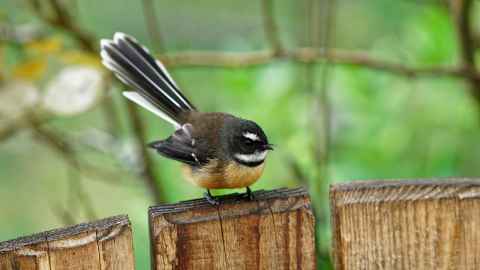For your mental health, pay attention
27 September 2021
Opinion: As we slowly emerge from lockdown and head into Mental Health Awareness Week, Margaret Stanley reflects on things that can help us through difficult times.

I was drawn to a career as an ecologist through curiosity and a love for all creatures great and small.
My mother was instrumental in nourishing my love of nature. Even as a busy mother of seven children, I clearly remember the times she pointed out a stick insect or frog in the garden, tried to call fantail closer to us with her trademark squeaks, and helped me catch little fish with a net made of pantyhose.
Those close interactions with nature filled me with awe and pleasure. Like so many others, Aotearoa’s glorious natural landscapes give me joy and take away the stress of a busy life. The irony is, the more I advance in my science career, the more I sit behind a desk supporting others to do the fieldwork rather than being outside myself.
As Aotearoa slowly emerges from Covid-19 level restrictions and we head into Mental Health Awareness Week, it’s timely to reflect on the things that got us through this very difficult time. Separated from loved ones and disorientated by disruptions to routines and social and recreational activities, many of us turned to the simple things in life. Social media during lockdowns become filled with food and nature.
It’s long been known that spending time in nature has enormous benefits for mental and physical well-being. Hospitals, particularly for veterans, often had gardens to help patient recovery, and getting some ‘fresh air’ in the outdoors has always been seen to help lift spirits.
In the last few decades, a flurry of research has shown the benefits that exposure to trees, birds and nature in general can bring. So much so that ‘Green Prescriptions’ are dispensed by doctors around the world. Even 10 to 20 minutes in nature can improve blood pressure, stress levels and mental well-being.
Not all outdoor activity is equal though: walking through your local park filled with trees and birds gives you more benefits than walking through suburban streets, particularly streets without trees.
After long bouts of fieldwork, it is typical for ecologists to feel extremely low returning to work in the office. I often warn my postgraduate students that they should be prepared for a drop in well-being when fieldwork stops and writing up begins, and put plans in place to get outside more often, even for small bursts.
Lockdowns, particularly where we come out from the depths of winter, have re-instilled my connection with the nature around me – I was home to experience it, with nowhere else to go. Winter is a time that makes us feel low anyway – many of us go to work in the dark, sit in an office all day and then come home in the dark. It’s a very disorientating time without that connection to natural light and nature.
A key for me was reconnecting with the seasonality of nature in the city and really taking the time to notice the changes around me in my small suburban garden. The tūī are back. What’s flowering? Ah, the karo tree! I’m now looking out for the spring flush of growth in different plants and feel simple pleasure in a young plant flowering for the first time.
Tohu (signs/indicators), such as flowering or the appearance of particular birds, are a critical part of maramataka (Māori lunar calendar) and direct many activities, such as planting and fishing for Māori communities.
For those people who never or rarely get outside of the city, access to nature closer to home is critical. And we know that street trees, parks and nature aren’t equally distributed in cities, it’s a global pattern that low socio-economic areas have less access to nature than the rest of us. This inequality has really come to the fore during lockdown, where some of us are privileged to be close to some sort of nature to spend time in close to home. Re-prioritising urban greening efforts in neighbourhoods without street trees and biodiverse parks is critical to get underway.
Globally, efforts are being put towards creating spaces for gardens, even small ones, in inner-city hospitals, prisons and mental health facilities because of the tangible benefits they bring to recovery and mental health. Great things can be done in small places, even houseplants or pot plants on balconies for apartment-dwellers can bring joy.
We all need to stop and look for the signs of nature and the benefits this brings to us. Be in the present. Stop and really look. And really listen. Feel the different textures of the plants in your garden, notice the feeding scars of slugs and caterpillars on the leaves. As we leave Covid-19 restrictions behind us, don’t forget to stop and smell the flowers. Literally. It will do your mental health the world of good.
Associate Professor Margaret Stanley is in the School of Biological Sciences.
This article reflects the opinion of the author and not necessarily the views of the University of Auckland.
Used with permission from Newsroom For your mental health, pay attention 27 September 2021.
Media queries
Alison Sims | Media adviser
DDI 09 923 4953
Mob 021 249 0089
Email alison.sims@auckland.ac.nz